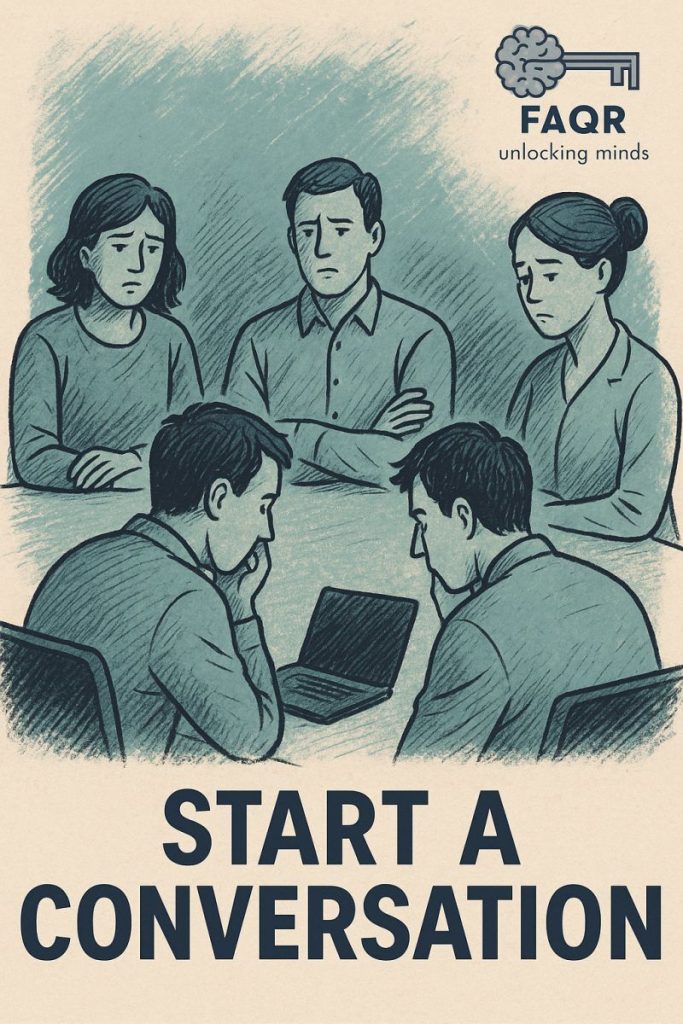
You can feel it, can’t you?
Something’s off.
The team’s quieter these days. Slack feels heavier. Meetings are shorter, but not in a good way. It’s not just the silence. It’s the tension underneath it all. Unspoken. But present. Everywhere.
You’ve noticed it in check-ins. Heard it in passing comments. Felt it in your body every time Slack pings and your shoulders instinctively tighten.
You want to speak up. You want to suggest bringing in a coach or facilitator. But a voice in your head says, “That’s too soft. Too woo. What if they think you’re overreacting?”
So, like most people, you stay silent.
And the cycle continues.
But here’s a way to shift the conversation without sounding fluffy or overly emotional:
Step 1: Speak the business language
Try saying something like:
“I’ve been noticing a drop in morale and engagement. It’s subtle but it’s showing up in missed deadlines, less participation in meetings, and just… lower energy overall.”
This tells them you’re tuned into team performance, not just personal feelings.
Step 2: Link it to performance
“I came across a coaching model that’s not about motivation or ‘positivity’. It’s designed to uncover blind spots, shift unhelpful mental patterns, and improve how teams think and communicate on a neurological level.”
Now the conversation shifts from soft to strategic.
Step 3: Make it safe to try
“Would you be open to a one-time pilot session? Just a single workshop to test the waters. If it’s helpful, we can take it from there.”
That way, you’re not pitching a full-on transformation. You’re offering an experiment. Low risk, high potential upside. And here’s the deeper truth most people don’t talk about: Coaching, when it works, doesn’t feel like therapy. It feels like clarity.
It gives people tools to:
– Reset their emotional baseline
– Rewire how they respond under pressure
– Rebuild confidence without needing another degree or certification
So if you’ve been wanting to raise the idea but second-guess yourself because you’re worried it might sound too sensitive…
Just remember this:
Performance and well-being aren’t opposites.
They’re partners. When one suffers, the other does too.
One honest conversation can shift everything.
And I’ve helped teams have that conversation before.
